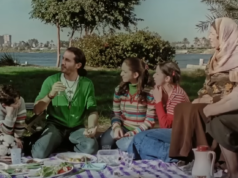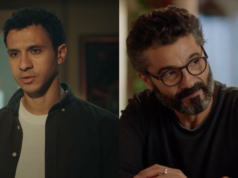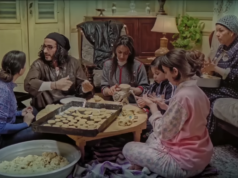Written by: Mahmoud Mansi
As a good friend, you might think it’s always the right thing to talk problems out with your friends struggling with a certain situation. But sometimes, your good intention-ed speeches will make matters worse and freak them out further.
In order to avoid such pickle, here are 8 things to avoid saying to your friend going through a divorce.
- Asking questions like “What happened?” and “Who was the reason?”
Some people tend to be very curious. We all know someone who is super curious, and sometimes we are this person. Curiosity is a good quality, but not when it intrudes on other people’s privacy. Couples still share a private life, even after the relationship ends.
Before asking “What happened?”, make sure you’re in the right place to ask such a question. However, asking questions like “Who was the reason?” is totally unacceptable, as you unintentionally blame one party and victimize the other.
- Making assumptions
Sometimes while talking to our friend going through a divorce, we view things from our own perspective and later talk about them as if they were given facts.
- Giving your opinion about your friend’s partner or their family
Almost 90% of people fall into this trap; giving themselves the right to judge someone or their family. If you absolutely have to say something, you can give your opinion about a situation not a person.
- Trying to force your friend to tell you their story with the intention of making them “share and open up”
Many times we like to play the role of the therapist, whether we are actually qualified or not. We should be very cautious about our friend’s feelings. Always assure them that you are there for them whenever they feel the need to talk or share, but don’t force them to talk only because you are curious.
- Giving yourself the right to analyze their life
There is a big difference between being a good listener and interfering in someone’s life by giving your opinion about this person. Many times we tend to tell our friends that they “were wrong” or “shouldn’t have done this”. Always keep reminding yourself that your role is to help your friend feel better, embrace the experience and become a better version of themselves.
- Saying things like, “You will find someone else,” or “You will find someone better,” etc.
Saying similar things means that the concerned person – your friend – will only find happiness through finding a new partner or being in a new relationship. Finding happiness through being single or through moving into a new relationship or going back to their ex is really not your decision.
- Making your friend’s story a public one and sharing it with others
Many of us – without even noticing – can engage in different conversations and start referencing our friend’s story, names included.
- Asking if they have children or not
Many times we ask this question, and if the answer is “No”, we affirm that it’s for the better. We do not have the right to assume what is better for anyone, perhaps your friend wanted to have a child! And if the answer is “Yes”, we sometimes suggest that the couple should have been more patient for the sake of their children! Which once again, is not our concern, decision or call.
Call for Action
Help your friend going through a divorce focus on the future. Be there for them. Only share your opinion if you are asked to, but without causing harm.



















